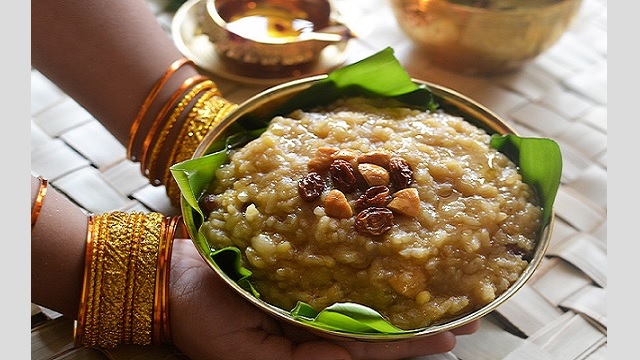Pongal 2023: History and Significance of the 4 Day Long Harvest Festival
Pongal is a popular harvest festival celebrated in the Southern states of India, mainly in Tamil Nadu, Andhra Pradesh, and Telangana.
Pongal is a popular harvest festival celebrated in the Southern states of India, mainly in Tamil Nadu, Andhra Pradesh, and Telangana. It is an important South Indian festival celebrated to honour Lord Surya Narayan (Sun god). Sun rules Earth and plays the most important role in the well-being of the planet. It also provides healthy crops which for us to have proper meals.
In northern India, the celebration is known as Makar Sankranti. However, unlike the north, the south celebrates Pongal for three to four days. This year, it will be celebrated for four days- January 15 to January 18.
The rituals of these festivities include offering milk rice to the sun deity and the well-known bull-taming sport of Jallikattu. Read further to know more about the four days festival known as Bhogi Pongal, Surya Pongal, Mattu Pongal, and Kanum Pongal.
Significance of Pongal
The Pongal celebrations are quite precious to Tamilians. According to the Tamil calendar, this month is known as Thai month, and people of the south believe that this period brings positive change to their lives and helps them overcome their problems. Notably, this is the time of the year when crops like sugarcane, turmeric, and rice are harvested. This month is thought to be auspicious for marriages, engagements, and all religious and spiritual activities.
According to tradition, the festival marks the end of the winter solstice, and the start of the sun’s six-month-long journey northwards when the sun enters the Capricorn, also called Uttarayana.
History of Pongal
According to Hindu mythology, on this day, Lord Shiva sent his bull Nandi to encourage mortals to take a monthly meal, an oil massage, and a bath. However, confused Nandi ended up advising everyone to take an oil bath once a month and take meals every day. When the bull went back, lord Shiva was enraged and condemned Nandi to live forever on earth. He is mostly responsible for plow work and assisting others in increasing food production.
Day 1 (Bhogi Pongal)
The first day of this four-day celebration is the Bhogi Pongal, it usually falls on January 14. The day is dedicated to Lord Indra who is credited for bringing prosperity to the land. He is revered as the rain God, hence, responsible for the well-being of our ecosystem.
Bhogi Pongal is also known as Bhogi Mantalu because, on this day, people burn their unwanted household items in a blaze composed of wood and cakes made by drying cow dung. Usually, women from each house perform the ritual by dancing around the bonfire and singing songs in praise of God.
Day 2 (Surya Pongal)
The second day of the Pongal celebration, Surya Pongal, falls on January 15. It is the main day and begins with boiling fresh milk until it reaches the vessel’s edge. These festivities are believed to bring prosperity. The residents of southern India prepare the traditional sweet dish “Pongal” on this day using rice, milk, and jaggery. This dish is first offered to the deity as prasad. In order to perform the ceremony collectively, women from various regions of Tamil Nadu and other states, assemble at a specific site. Apart from the Pongal, bananas, coconuts, and sugarcane are also offered to the Sun god.
Day 3 (Mattu Pongal)
Mattu Pongal celebrated on the third day of this festival, is devoted to cow worship. It usually falls on January 16. On this day, agricultural animals like cows and oxen are honoured since they help farmers effectively raise and harvest their crops. Farm animals are bathed and artistically decorated ahead of the celebration. As part of the worship, cows and oxen are offered “Pongal” and their horns are typically painted and garlanded. In rural areas, bullfights referred to as Jallikattu are also organized on this day.
Notably, the bull-taming sport is well-known in the Madurai area of Tamil Nadu.
Day 4 (Kaanum Pongal)
Kaanum Pongal, otherwise called Knau Pongal, falls on January 17. It is the fourth day and last day of the celebrations. This day is all about the community and strengthening ties. Friends and families come together for a feast and also participate in traditional Indian folk dances such as mayilattam and kolattam.




 Ms Kalinga
Ms Kalinga